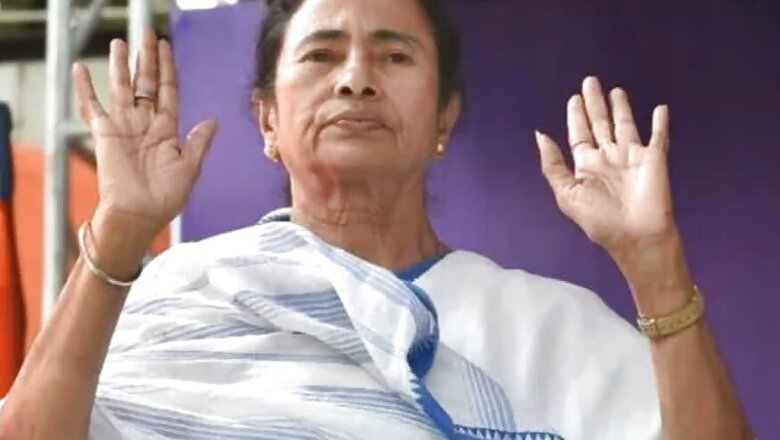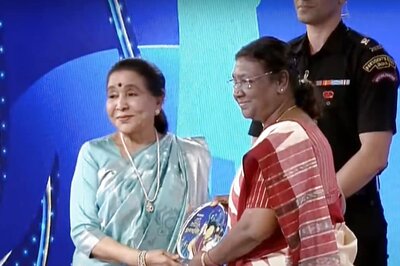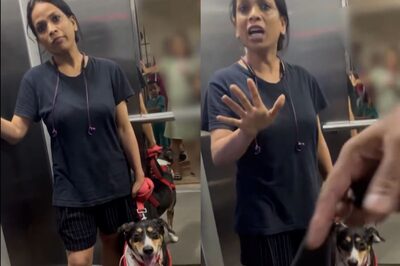
views
It would be naive to overlook their might in Bengal’s Jangalmahal.
During the 2019 Lok Sabha poll campaigning, they publicly announced the impending defeat (by not giving their votes) of Trinamool Congress’s Beerbaha Soren. And they did it, as the Bharatiya Janata Party’s Kunar Hembram won against Beerbaha by 11,767 votes.
Since ages, they have their own terms and they change their political stand in every election depending on the ‘minimum courtesy’ that they get from the TMC, BJP, Communist Party of India (Marxist) or Congress.
Since 1977, they had blWith a nearly 38-40 per cent vote share, meet the ‘Kurmis’ or ‘Kudmis’ in Jangalmahal that comprises Jhargram, Purulia, West Midnapore and Bankura. They are not only crucial for any political party to win an election but they also have their own unique ‘united gharana’ of extending or rejecting a candidate.
essed the CPI(M), but in 2011 they went in favour of the TMC. And in last year’s Lok Sabha polls, their support helped the BJP make deep inroads in Jangalmahal.
Now with assembly polls once again nearing Bengal’s doorsteps and political activities picking up pace in Jangalmahal, all the political parties are trying to woo the Kurmis.
Unlike in other constituencies, the BJP’s ‘Hindu card’ and ‘Jai Shree Ram’ does not work among the Kurmis because these are among the many issues they have been fighting for decades.
Kurmi community leaders alleged that they were forced to follow Hindu rituals as their demand to make Sarna Dharma (worshipping the woods/nature) official is still pending with both the state and central government.
“The BJP indulged in ‘dharma parivartan’ (conversion) of tribal people. They took my tribal brothers to Kolkata for ‘tarpan’ (libation) at River Ganga amid slogans of ‘Jai Shree Ram’. Actually, the ritual of tarpan is not present among the tribal community and Kurmi people. Kurmis believe in ‘Jai Guram’ and they believe in ‘Sarna Dharma’. But BJP is asking them to shout ‘Jai Shree Ram’. What does it mean? The BJP don’t even know the tradition and culture of tribal people. They are only interested in their votes,” TMC leader Chhatradhar Mahato said.
Sources say that to some extent, the Kurmis are pleased with TMC chief Mamata Banerjee who formally made ‘Kurmali’ an official language of the state with the West Bengal Official Language (Second Amendment) Act, 2018.
Speaking to News18.com, Anup Mahato, president of Adivasi Kurmi Samaj in Jhargram, said, “This time (in the context of the state assembly polls) we are expecting ‘minimum courtesy’ from the political parties. Whoever will extend the ‘minimum courtesy’, we will think about them. Out of nearly 42 assembly seats, Kurmis dominate about 16. In these 16 seats, without Kurmi support, no political party can win.”
When asked to elaborate on ‘minimum courtesy’, he said, “We are demanding ST status for several decades. Unfortunately, despite being promised this by all the political parties, nothing has been done. Both the BJP and TMC have enough MPs. At least they can raise our demand in Parliament. They never did. We are demanding for Sarna Dharma but we were forced to follow the Hindu rituals. This is such a simple sentimental matter. I don’t understand what is stopping the central government from approving it. The Cultural Research Institute (CRI) report is also pending with the state government since 2018 and they are not releasing it. So our point is someone should at least take some steps towards our demands.”
The Cultural Research Institute (CRI) report is very important for the tribal community. In 1953, the Second Conference for Tribes and Tribal (Scheduled) Areas was held in Lohardaga. Then a resolution was adopted to set up tribal research institutes in all the states of the country by the Centre. Based upon this policy, the CRI was set up in West Bengal in 1955. The main objective of the body was to look into the needs of the Scheduled Tribes of the state. The CRI is responsible for undertaking research on tribal life and its different facets including their socio-cultural, ethnographic, economic aspects and educational status. Besides helping them by preserving and promoting their heritage, attempts to raise their economic and educational standards are also key targets of the CRI.
In 1913, during British rule, Kurmis were listed in the ST category as per the Shimla notification. However, they were dropped from the list on September 6, 1950. Presently, they are in the OBC (B) list.
“We are fighting for our demands for the past 69 years. We met Rajnath Singh, when he was the home minister, in New Delhi, but nothing happened. Now, we have sought an appointment with our chief minister Mamata Banerjee, and we are expecting to meet her soon. We have already sent an official letter to her on July 30, 2020,” said Ajit Mahato, an influential leader of Adivasi Kurmi Samaj. “We have three Kurmi’ MPs in Parliament. They are BJP MP from Purulia Jyotirmay Singh Mahato, MP Chandra Prakash Choudhary from Giridih and Bidyut Baran Mahato from Jamshedpur. We felt bad when Purulia BJP MP Jyotirmay Singh Mahato refused to sign a letter related to our demand, while others wholeheartedly supported us. We expect that the state government will look into our grievances and demands.”
Sources said Mamata is planning to visit Jangalmahal soon and is likely to hold several administrative and public meetings.
Going back to past polling, in the 2019 Lok Sabha elections, the Kurmis backed the BJP with the hope of getting their issues resolved and the saffron party’s vote share jumped remarkably from about 19 per cent in 2014 to nearly 41 per cent last year.
The Kurmis showed their might in the 2018 panchayat elections as well, when the ruling TMC suffered a massive jolt in Jhargram, Purulia and Bankura, after the community decided to go with the BJP. The Kurmis helped the saffron party get nearly 37% of the panchayat seats. TMC lost 28 out of the 79 gram panchayats in these areas.
In Jhargram panchayat samiti, the BJP secured two seats, while six seats were won by the TMC. At the gram panchayat level, BJP secured 329 seats, while TMC received 372 seats.
A significant achievement was witnessed at Purulia’s Balarampur where the BJP secured 18 out of the 20 panchayat samiti seats.
However, in the past few months, the Kurmis have been raising their voice against the Centre as their demand is still pending. They have even threatened to back the state’s ruling TMC in the 2021 assembly polls because they feel they are being taken for a ride by the BJP similar to what happened with the Gorkhas in the Hills.
Now the Kurmis are organising meetings on pending issues at the district level, and from there the message about whom to support will go to the block level and from there to the ‘anchal’ level and finally to the village committees.
There are more than 1,000 Kurmi villages in Jangalmahal including 750 in Jhargram alone with a 42 per cent vote share there. In Purulia, 65 per cent voters are Kurmis, while in Bankura and in West Midnapore the figure hovers around 15-16 per cent.
Read all the Latest News and Breaking News here



















Comments
0 comment